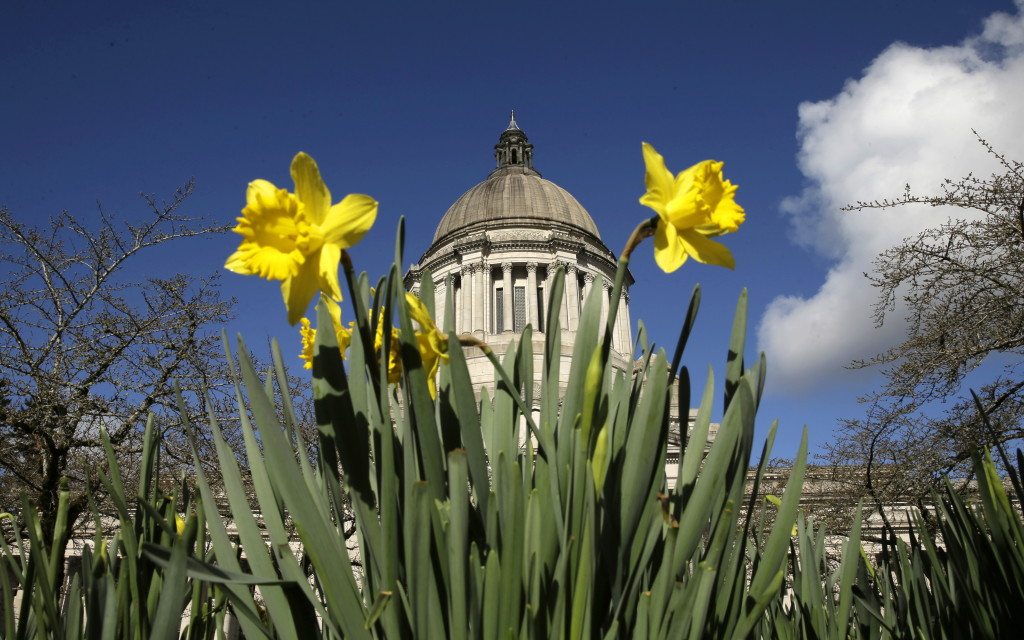Christmas is over, but for many who follow the state Legislature, the start of the year is another time to unfurl wish lists.
Lawmakers will convene in Olympia on Monday for a 105-day regular session. A lot will be said about reforming the state’s education funding system, which the state Supreme Court ruled unconstitutional in 2012.
Beyond that, business groups have a number of familiar requests for the state, from patching local roads and state highways to keeping taxes on businesses low. Fixing the flow of interstate traffic — which could include replacing the Interstate 5 Bridge — remains a major desire. The Columbian reached out to some local groups to gauge their concerns ahead of the session.
Infrastructure and workforce development
The Columbia River Economic Development Council, the Greater Vancouver Chamber of Commerce and Identity Clark County have whittled their priorities to four sectors: infrastructure, workforce and education, environment, and economic development.
In terms of infrastructure, the marquee project is the 100-year-old Interstate 5 Bridge between Washington and Oregon. The loudest voices say the bridge interferes with interstate economy, both in terms of freight and general traffic.
CREDC President Mike Bomar said he also hopes to see fixes extended to state highways and well-trodden arterial streets.
“If we have challenges even on our small state highways, creating better circulation throughout the county” will help economic development, Bomar said.
One such move might be enacting current transportation packages sooner than they are scheduled, such as the Connecting Washington package that was passed by lawmakers last year but won’t kick in until 2024-2025.
The CREDC will be interested to see how well Washington State University fares when it asks for funding on three projects: $600,000 for its proposed Life Sciences building in Vancouver, $5 million to expand its engineering program and $10.8 million for its new medical school. Similarly, the Washington State Board for Community and Technical Colleges is asking for capital funding, including $5.2 million to help Clark College build an advanced manufacturing building for its new Boschma Farms campus in Ridgefield.
Bomar said the requests, if granted, could result in more skilled workers for the region.
“Education is closely tied to workforce,” he said. “It’s not all about workforce, but in reality, the skills gap is huge and we want to make sure the solution addresses it to the extent that we can.”
The groups will also be looking for tax breaks, including exemptions for companies that spend a lot of money on research and development. The state offered such a tax credit until it expired in 2015. The business groups also support tax breaks for technology and aerospace manufacturers.
Port district support is another big wish, particularly the Port of Vancouver’s Terminal 1 project at the waterfront and a high-speed fiber optic network at the Port of Ridgefield.
“The ports are designed to be economic development engines,” said Vancouver chamber President John McDonagh. “If the infrastructure that they’re requesting is dealt with, then the economy is supported.”
Taxes: B&O and carbon
The Association of Washington Business, an Olympia-based lobby representing businesses statewide, said it will keep a close eye on Gov. Jay Inslee’s budget proposal and his plans to address education funding.
Washington has been fined $100,000 per day after the state Supreme Court ruled in 2012 the state violated its own constitution by funding local school districts largely through local levies.
Among other things, the governor’s proposed budget aims to raise business and occupation taxes from 1.5 percent to 2.5 percent. The move could raise $2.2 billion in the 2017-19 biennium, according to the governor’s office.
The tax would impact thousands of businesses that provide services, including restaurants, law firms, tattoo parlors, auto body shops and everything in between.
Gary Chandler, vice president of the AWB, said the tax increase would disproportionately affect rural businesses, which have not boomed like those in Seattle.
“As the governor’s looking at putting this large tax increase together, most of the state is looking to come alive and not be in the recession,” he said. The AWB represents about 8,000 businesses across the state.
The governor’s budget also calls for new taxes on capital gains and carbon emissions. Chandler said he worries the carbon tax would raise utility costs which, combined with upcoming minimum wage increases and mandatory paid sick leave, are making it tougher for businesses.
“That small-business guy out there, it gets tough to really make it and be competitive this way,” Chandler said. The Moses Lake native said he did not expect the budget to pass as is.
“I don’t believe so. I would hope not because it would have a negative impact on a lot of us,” he said.




